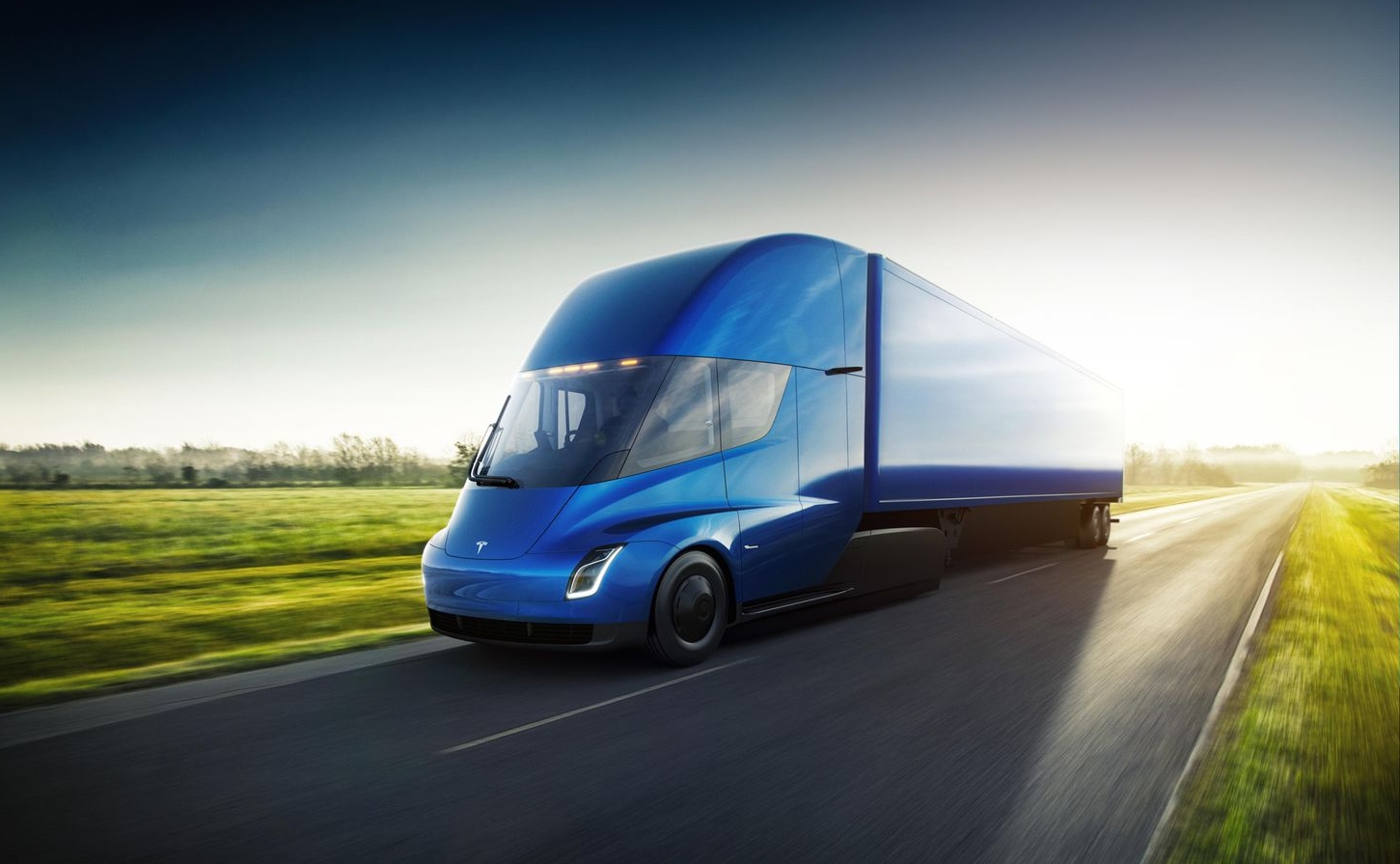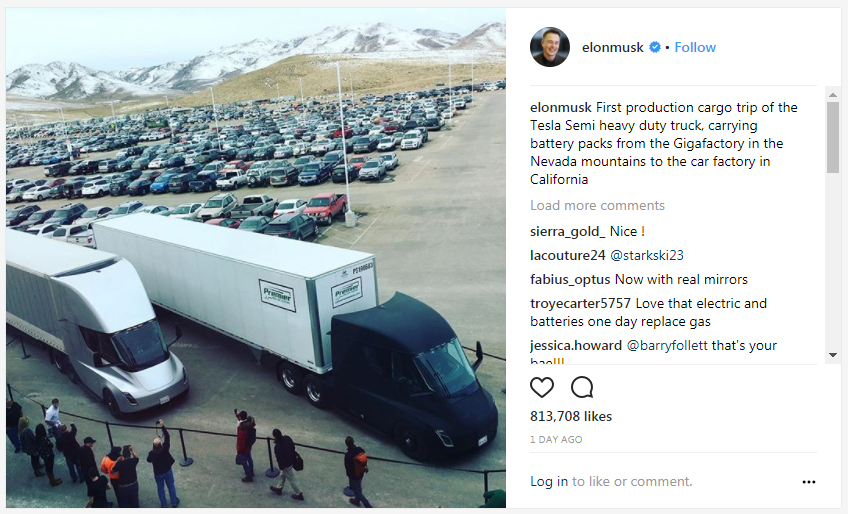
Although Tesla is primarily known for their line of premium electric cars, CEO Elon Musk has had his eyes set on more than just that. Last November, Tesla announced they would be developing a line of electric trucks used for commercial transportation. This week, the trucks made their first official production delivery, carrying battery packs from the Gigafactory in Nevada to Tesla's car factory in California.
Following this successful trip and future testing, Tesla hopes to sell their trucks to some big industry names like Walmart, DHL and JB Hunt. Tesla will still continue to use them internally while the models are being refined. Although this is the first publicized trip made by the semis, Tesla has also been testing discrete prototypes on a similar route for the past few months.

Tesla claims the trucks will have an operational range of about 500 miles and this trip from Nevada to California is about 240 miles each way. There is some considerable elevation change so it's not clear if they will be making the round trip journey or charging up midway.
Critics of the trucks worry about its hauling capacity and its range since it is easy to simply fill up a traditional semi with diesel but charging up can take hours. On a production and economics side, Tesla is likely diverting the majority of their resources to the upcoming launch of the Model 3 so we may have to wait until after that to see the full potential of these trucks.
https://www.techspot.com/news/73639-tesla-electric-semis-make-first-production-cargo-trip.html